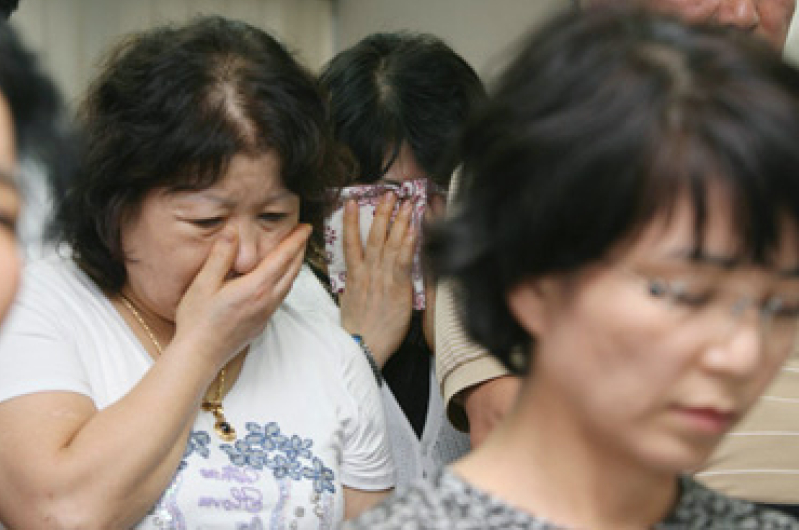
The Taliban said 22 Korean Christian hostages are still alive in Afghanistan Thursday after an overnight deadline to kill them passed.
It is the latest update on the fate of the Korean aid team following silence after the 1 a.m. (local time) “final” deadline ended without a prisoner swap as the rebels had demanded.
“Since the last deadline, no more Koreans have been killed,” said purported Taliban spokesman Yousuf Ahmadi to Agence France-Presse in a telephone call from an undisclosed location. “They are all alive so far.”
News on the relative safety of the remaining Korean captives comes as a relief after the Taliban killed its first victim Wednesday.
The body of Bae Hyung-kyu, Presbyterian youth pastor and leader of the aid mission, was found with 10 bullet holes in his head, chest and stomach in the Mushaki area of Qarabagh district in Ghazni province – where the Koreans were abducted July 19.
According to Bae’s church in Korea, the youth pastor was murdered on his birthday – turning 42 before his death.
“I never thought it possible,” said Bae’s mother, 68-years-old Lee Chang-suk, who broke into tears as she watched the televised government announce her son’s death, according to Yonhap news agency.
South Korea has denounced Bae’s murder and said it will seek justice for his death.
“The organization responsible for the abduction will be held accountable for taking the life of a Korean citizen,” South Korean President Roh Moo-hyun said in a statement.
“The killing of an innocent citizen cannot be justified under any circumstance or for any reason, and any such inhumane act cannot be tolerated.”
Top presidential envoy Baek Jong-chun, South Korea’s chief presidential secretary for security affairs, departed for Afghanistan Thursday to consult with top Afghan officials on how to secure the release of the remaining Koreans.
The Korean captives are believed to all still be held by the rebels despite news Wednesday that eight of the hostages had been released in exchange for money.
Militants have held captive the Korean Christians for a week now since the church group was first abducted while riding on a bus through the insurgency-prone Ghazni province last Thursday.
Despite accusations that the Koreans were on an evangelistic mission in the heavily-Muslim country, both the Korean president and the head pastor of the hostages’ church have emphasized the team was only there to provide free medical services to the poverty-stricken citizens of Afghanistan.
“There are some who misunderstand us but we didn’t attempt any aggressive missionary activities,” said the Rev. Park Eun-jo on Monday, according to the Korean newspaper The Hankyoreh.
“We love Afghanistan and respect Muslim culture. We want to continue our community service work in medical facilities and schools in a way that is desirable to the people of Afghanistan,” said Park.
Meanwhile in Afghanistan, a local police chief reported there seems to be disunity within the Taliban – as various members have made different demands – making negotiations difficult.
“One says let’s exchange them for my relative, the others say let’s release the women and yet another wants a deal for money,” said Khwaja Mohammad Sidiqi, a local police chief in Qarabagh, according to The Associated Press. “They have got problems among themselves.”
South Korea, however, has said it wants to continue talks with the rebels and is against the idea of a rescue mission.
“We oppose military operations and there won’t be military operations that we do not consent to,” said South Korean presidential spokesman Chun Ho-sun, according to AP.
The kidnapping of the 23 Korean Christians is the largest abduction of a group of foreigners in Afghanistan since the fall of the Taliban regime in 2001.






